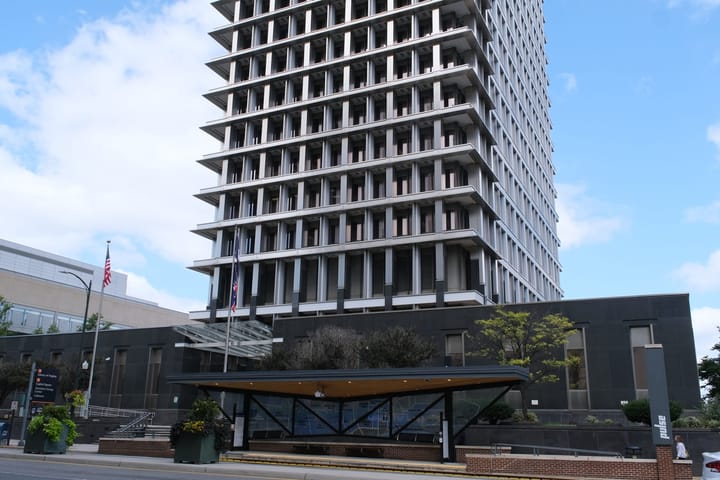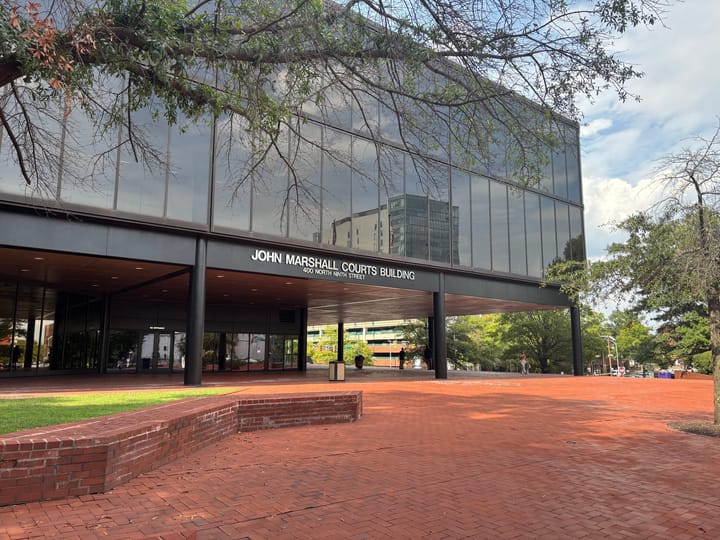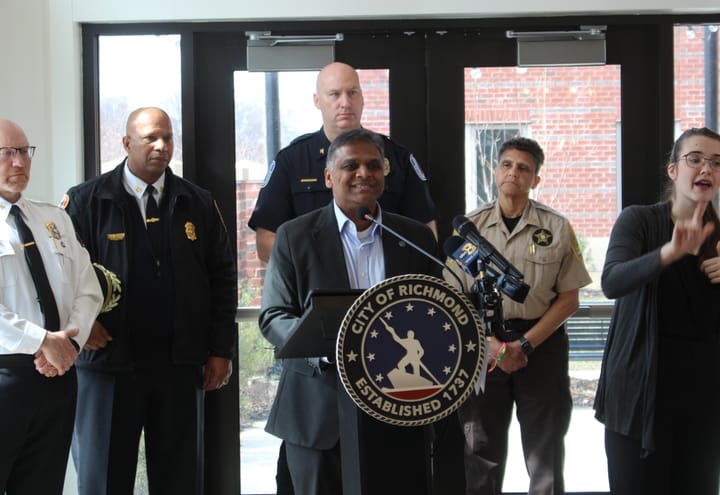Opioid settlement money funds city initiatives for harm reduction
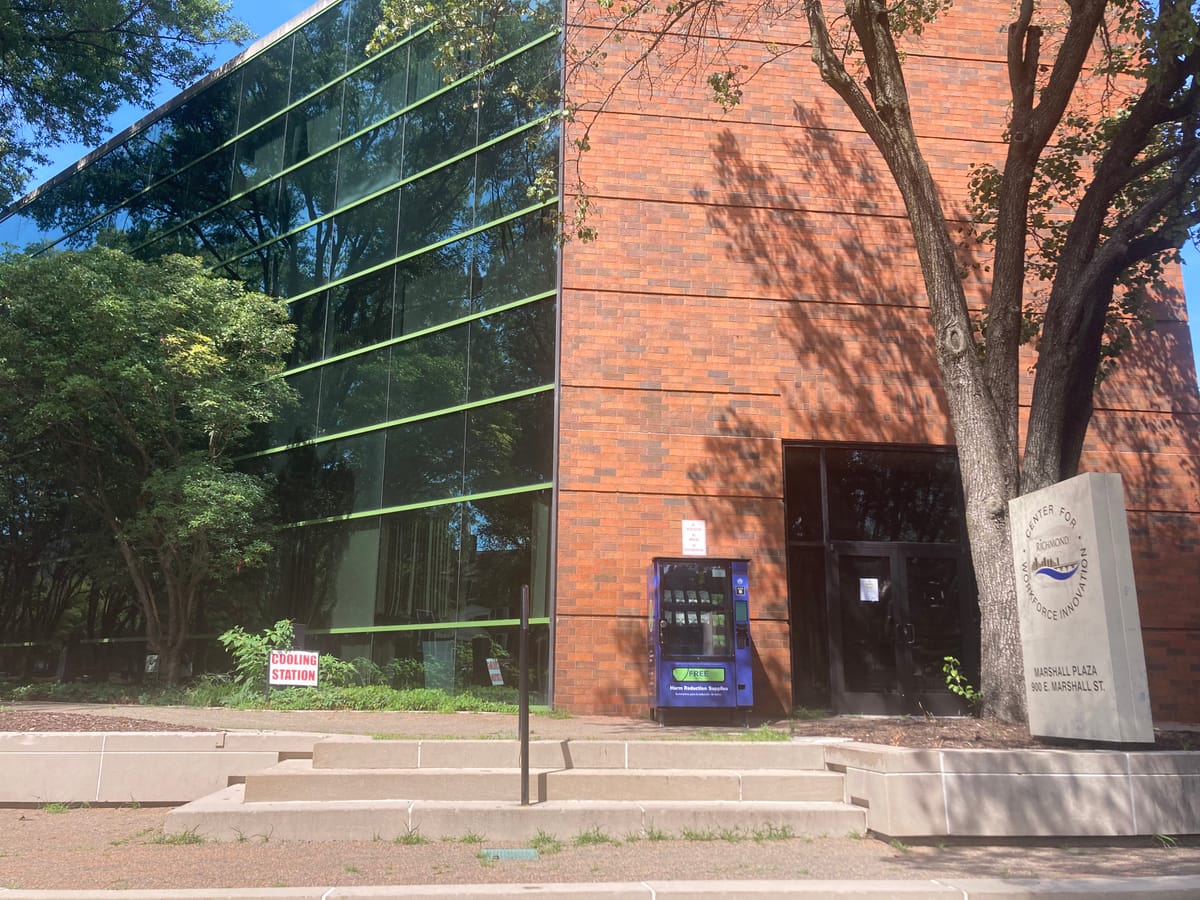
Two weeks ago, the city opened its new Office of Opioid and Substance Use Response (OOSUR), hiring Anna Jones as its new Opioid Response Strategist, and announced one of its first initiatives — the installation of three harm reduction vending machines.
Both announcements are part of the city’s desire to address the opioid epidemic through comprehensive care and community partnerships.
The vending machines dispense naloxone (the generic name for Narcan), fentanyl test strips, first aid kits, toothbrushes and toothpaste, and menstrual products. So far, the city says people have been mostly using the machines for Narcan and fentanyl test strips.
Both the machines and new office are funded entirely by settlement funds the city is receiving through national settlements from opioid manufacturers and distributors. The state received an estimated $16.4 million.
“Nothing that we're involved with comes out of the city general fund. It's all from settlements, from these people that exacerbated the epidemic,” city official Jason Alley said.
Jones joined Jason Alley in what is now a two-person office. The duo both share both a personal stake and history with the subject matter of the office, and a dedication to support community-based groups already doing the work the office seeks to advance. They each refered to their jobs as “a privilege of a lifetime,” and “a great privilege.”
Born and raised in Richmond, Jones comes to City Hall after working at the Chesterfield Recovery Academy, a high school for students in or exploring recovery, and as the Opioid Outreach Coordinator for Chesterfield County. Jones is a licensed clinical social worker and part of the recovery community in Richmond as well.
“It's been a really nice confluence of things that have impacted my life, and feeling that this is a place where I could really utilize my skills and history, both personally and professionally, to kind of expand this team and grow,” Jones said.
The naloxone dispensers are especially important, Alley said, because they make the life-saving drug free.
Because the drug is now approved to be over-the-counter, it is more accessible, but more costly. The vending machines provide a free, easily accessible option.
The machines are both anonymous and low-barrier. To use the machines, users must input their zip code, or any zip code, or any combination of five numbers, then they simply select what they want and the machine dispenses it.
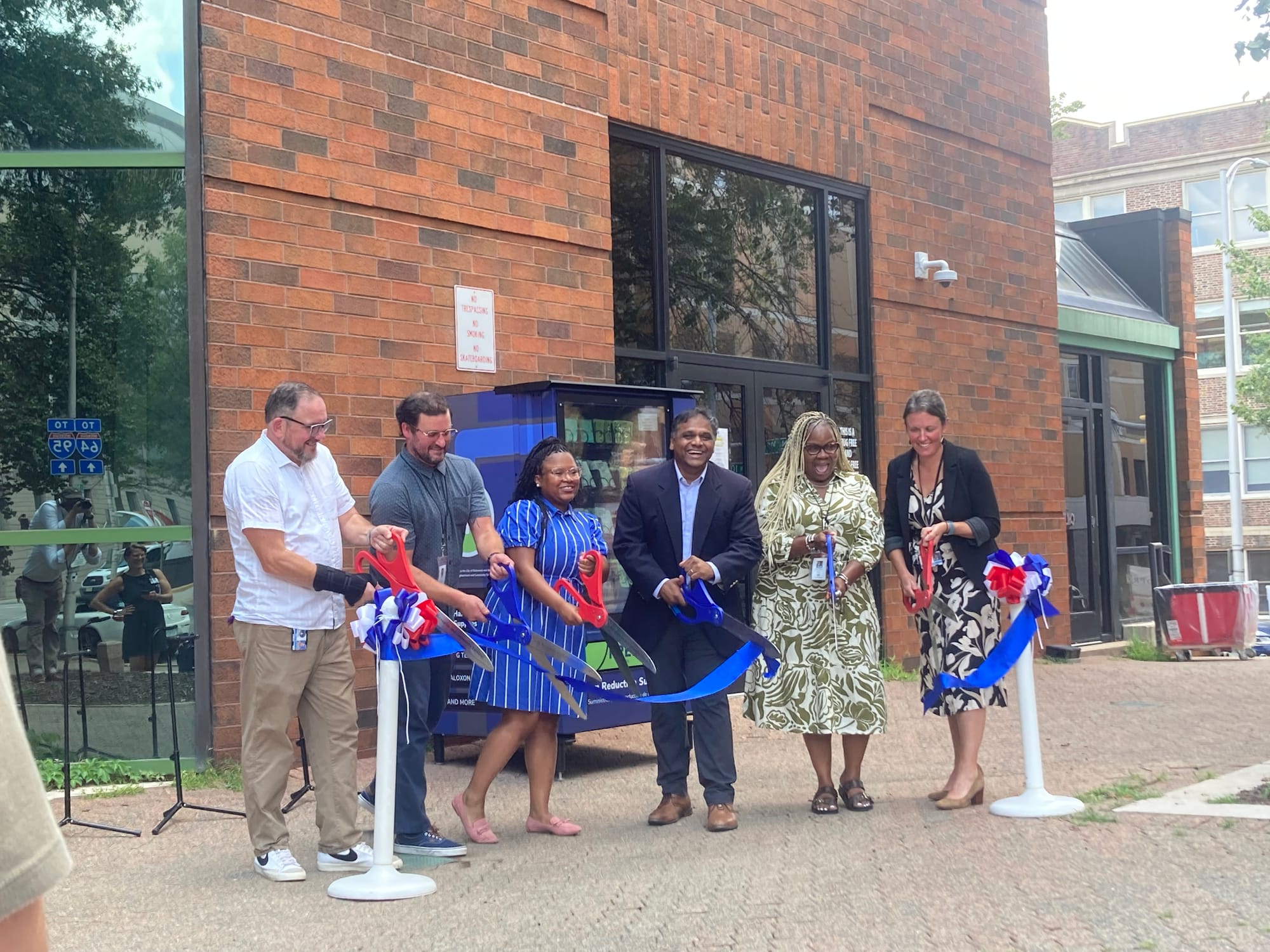
The boxes of naloxone include instructions, but Alley said the implementation of the drug is as easy as the click of a button. The more complicated part, which the office hopes to teach in its workshops, is what happens around the dispensing of the drug: rescue breaths, calling 911, and the most difficult part, waiting.
“When you're standing over somebody that is not breathing, like, that's an eternity of time,” Jones said.
The teams will collect data on which products are being taken as well as which zip codes are being entered.
One thing the team has learned from these outreach conversations has been about community uncertainties over how many doses of naloxone it takes to revive someone. Because it can take several minutes to see an effect, many Narcan users administer multiple doses when they only need to administer one.
“The risk there is that the more naloxone you administer, the worse precipitated withdrawal symptoms are for the individual that you're administering it to. Really, the least amount of naloxone possible to get somebody breathing and up once you call for help is probably the best plan,” Jones said.
One of the primary goals of the new office is “expanding public education and awareness campaigns.”
Currently the office is working in collaboration with the Virginia Foundation for Healthy Youth on prevention outreach campaigns for middle and high schoolers.
Alley also runs trainings for city employees.
According to Jones, the vending machines themselves serve as “an opportunity for educational conversation.”
“In doing a lot of direct outreach, you get the opportunity to have two-way education. Folks are sharing with you what they're seeing and they're experiencing in their lives, in the drug supply, or with administering naloxone,” Jones said.
Richmond follows after cities like New York, Las Vegas and Seattle which have previously implemented the vending machines.
“It sets a tone for inclusive, stigma-free care strategy,” Deputy Chief Administration Officer Amy Popovich said of the machines.
Popovich said the initiative is an example of "investing in long-term systems, not just short-term Band-Aids.”
The vending machines were the brainchild of one of these community partners, Health Brigade, which just lost half of its funding due to federal funding cuts.
“Even though we have different funding sources, we're all impacted by the general funding landscape. So I think finding creative ways that we can center opioid response and substance use response while supporting other programs is super important, because harm reduction is like this really broad umbrella,” Jones said.
This umbrella, according to Jones, includes naloxone distribution, overdose prevention, as well as access to affordable housing and healthy food.
Mayor Danny Avula spoke at the event, calling the project "another example of our commitment to evidence-based practice” and an opportunity to “offer support without judgement.” Avula is the first modern mayor of Richmond to have held a career in public health before taking office.
Alley and Jones agree that the funds are just a start, though.
“Our settlement funds are never going to be enough to make up for the loss, but it is an opportunity to contribute some,” Jones said.
For now, they will go towards growing the office, and working in collaboration with community groups on education and trainings as well as testing for and treating hepatitis C and HIV, two diseases which IV drug users are known to be at risk for.
“You can't address substance use or opioid response and isolation, and it's part of this huge, complex tapestry of care,” Jones said.
Contact reporting intern Juliana Vandermark at jvandermark@richmonder.org.


